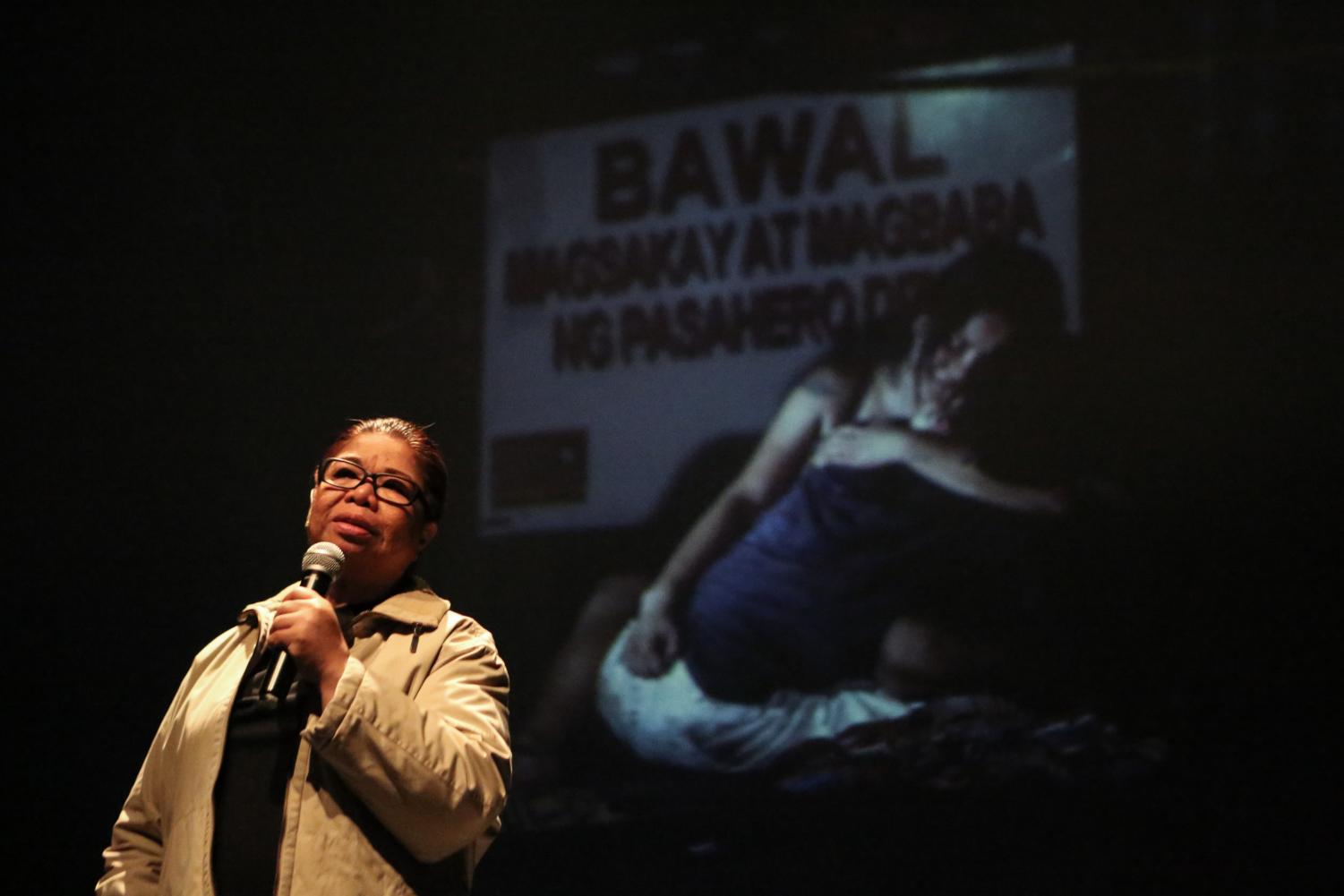
‘Tao Po’ director comes to host Q&A at SF State
Asian American Studies Professor Irene Duller brings Mae Paner to SF State to talk about her film "Tao Po."
May 6, 2023
For many, 2016 was a year of festivity. The Cavaliers beat the Warriors. New music from the likes of Drake and The Weeknd constantly filled the airwaves. And California legalized marijuana for recreational use. However, while many celebrated these wins, the Philippines faced the beginning of a bloody and violent drug war.
Last night, Asian American Studies professor Irene Duller hosted Mae Paner, a film director and activist from the Philippines. In the film “Tao Po,” Paner delivers a masterful portrayal as the sole performer and director. In what has categorically been labeled a documentary, Paner gives four monologues adapted from interviews of accurate firsthand accounts of those impacted by the drug war.
The drug war was former Philippine President Rodrigo Duterte’s main campaign platform. Duterte ran on the promise of eradicating drugs within his first six months in office. Soon after his inauguration bloodshed and tears were commonplace.
Though government officials claim the total number of drug war casualties is in the range of 5,000-6,000, human rights groups say that the number is closer to 30,000. This is due to police officials discounting vigilante killings, of which a majority of deaths stem from.
During a trip to the Philippines this past February, Duller was invited to Paner’s home for dinner. Paner was preparing for her United States tour for the film, and after suggesting a stop at SF State on a whim, the two would work together to make that a reality.
“I think this is the biggest crowd I’ve ever had,” Paner said with over 60 people in attendance.
After the screening, Paner held a Q&A, but not before addressing some of the context around her living situation going into the film. She would go as far as selling her car to see the production through.
“This movie is a product of my depression and anger in 2016,” Paner said. “On TV, you’d always see people getting killed and I just got so desensitized.”
The four monologues in “Tao Po” come from a variety of perspectives on the drug war in the Philippines: a photojournalist, a widower, a hitman and a surviving daughter.
With the impression that presenting this to like-minded individuals wouldn’t have the effect she wanted, Paner also presented her film to the Philippine National Police.
“You see the commentary on these subjects, but to see this — it was so much more powerful,” said Hugh V. Wang, a student in Duller’s class.
Ending her speech, Paner said, “Don’t just be aware, operate from your heart and do what you can.”
Additional reporting by Miguel Francesco Carrion


